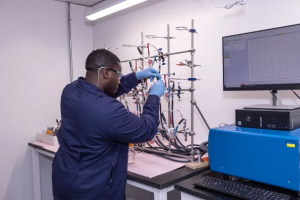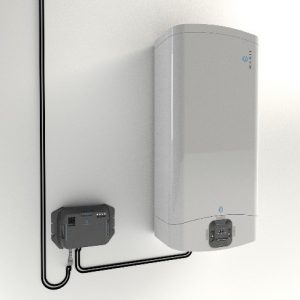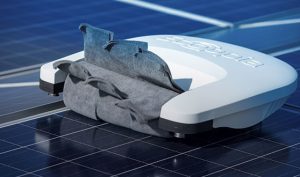A zinc-ion battery for stationary energy storage in residential applications has been created by the Canadian company Salient Energy.
Company CEO Ryan Brown states that “The batteries are currently manufactured at our facility in Dartmouth, Nova Scotia, Canada, with a capacity of 100 batteries per month”. The company is also working to develop its first Gigafactory plant design in either the USA or Canada.
The company claims that the zinc-ion battery functions similarly to current lithium-ion storage devices. “The battery can respond nearly instantly to supply or store clean electricity as needed. It is suitable for short-duration storage, which refers to energy storage devices that can fully charge or discharge in only a few hours, as it possesses Li-power ion’s capabilities,” Brown added.
For the most part, zinc-ion energy storage systems function the same as lithium-ion. The differences are in cost, safety, and supply chain abundance, not performance. Fire risk is eliminated by its water-based chemistry, making it a safe alternative to existing systems.
The battery weighs 1.3 kg and has dimensions of 26 cm by 24 cm by 1.2 cm. It has a nominal voltage of 1.3 V and a 60 Ah rated capacity. The gravimetric energy density is 60 Wh/kg and the volumetric energy density is 100 Wh/L. The shelf life is 100% for two weeks and 95% for six months.
Brown states that the company’s initial concentration is on the residential sector, especially starting with targeting homebuilders who are constructing net-zero houses and communities. “We are starting with residential since safety is so crucial to this market; we are certain that our zero fire-risk technologies will substantially simplify installation and provide homeowners with peace of mind. We want to move beyond household energy storage and develop utility-scale devices for the grid.
Due to difficulties in managing side reactions, which both restrict reversible charging at the anode and lead to the cathode disintegrating, zinc-ion storage methods have trailed behind other storage options. However, zinc-ion still has the potential to offer high energy storage performance from materials that are accessible and inexpensive.
Zinc-ion battery for residential applications – pv magazine International (pv-magazine.com)




